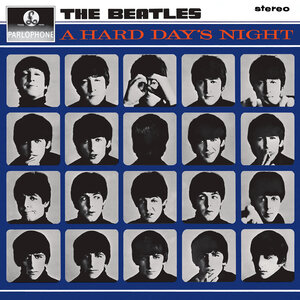
A Hard Day's Night is the third studio album by the English rock band the Beatles, released on 10 July 1964 by Parlophone, with side one containing songs from the soundtrack to their film of the same name. The American version of the album was released two weeks earlier, on 26 June 1964 by United Artists Records, with a different track listing that included selections from George Martin's film score. In contrast to the Beatles' first two albums, all 13 tracks on A Hard Day's Night were written by John Lennon and Paul McCartney, showcasing the development of their songwriting partnership.
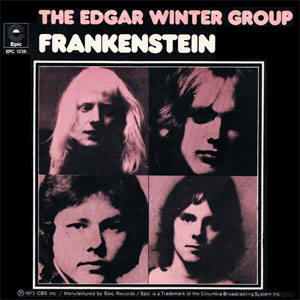
"Frankenstein" is an instrumental track by the American rock band Edgar Winter Group that was featured in the 1972 album They Only Come Out at Night and additionally released as a single.
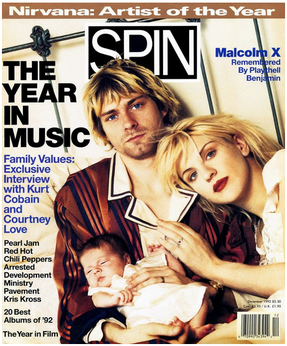
Spin is an American music magazine founded in 1985 by publisher Bob Guccione Jr. Now owned by Next Management Partners, the magazine is an online publication since it stopped issuing a print edition in 2012.

Charles John Klosterman is an American author and essayist whose work focuses on American popular culture. He has been a columnist for Esquire and ESPN.com and wrote "The Ethicist" column for The New York Times Magazine. Klosterman is the author of twelve books, including two novels and the essay collection Sex, Drugs, and Cocoa Puffs: A Low Culture Manifesto. He was awarded the ASCAP Deems Taylor award for music criticism in 2002.
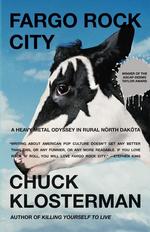
Fargo Rock City: A Heavy Metal Odyssey in Rural Nörth Daköta is a book written by Chuck Klosterman, first published by Scribner in 2001. It is a history of heavy metal music, with a particular emphasis on the glam metal that flourished during Klosterman's formative years in the mid-to-late 1980s, through its demise in the early 1990s, and potential rebirth in the late 1990s. It was awarded the ASCAP Deems Taylor Award for criticism in 2002.

Stars is a Canadian indie pop/rock band based in Montreal, Quebec. Since forming in 2000, they have released nine albums and a number of EPs. Their music has been nominated for two Juno Awards and two Polaris Music Prizes.
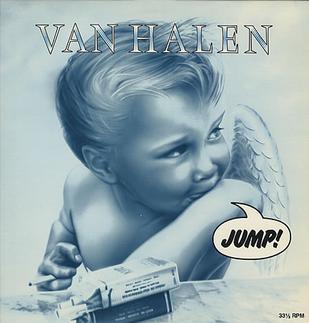
"Jump" is a song by American rock band Van Halen. It was released in December 1983 as the lead single of their sixth studio album, 1984. It is Van Halen's most successful single, reaching number 1 on the US Billboard Hot 100. The song differs from earlier Van Halen songs in that it is driven by a keyboard riff, although the song does contain a guitar solo. David Lee Roth dedicated the song to martial artist Benny "The Jet" Urquidez, of whom he was a student. In 2021, Rolling Stone ranked "Jump" at number 177 on its updated list of the "500 Greatest Songs of All Time".

"Songbird" is a song by English rock band Oasis from their fifth studio album, Heathen Chemistry (2002), and is the first single by Oasis written by vocalist Liam Gallagher. Released on 3 February 2003, the song reached number three on the UK Singles Chart, number two on the Canadian Singles Chart, and the top 10 in Ireland and Italy. During an interview with The Matt Morgan Podcast, Liam's brother and bandmate Noel Gallagher called the track a "perfect" song.

The Great Radio Controversy is the second studio album by American hard rock band Tesla, released in 1989. The album's sound has been described as "glam metal to play inside the cab of a tractor-blusey denim and downright wholesome".

Sex, Drugs, and Cocoa Puffs: A Low Culture Manifesto is a book written by Chuck Klosterman, first published by Scribner in 2003. It is a collection of eighteen comedic essays on popular culture.
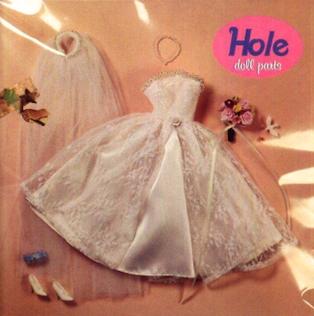
"Doll Parts" is a song by American alternative rock band Hole, written by vocalist and rhythm guitarist Courtney Love. The song was released as the band's sixth single and second from their second studio album, Live Through This, in November 1994 to accompany the band's North American tour. It was also the first single to be released following the death of bassist Kristen Pfaff in June 1994.

Love Song was one of the most prominent Jesus music bands, and one of the first Christian rock bands. They released two studio albums—Love Song (1972) and Final Touch (1974)—and one live album—Feel the Love (1977)—before disbanding. They subsequently released Welcome Back in 1994, remastered versions of the three early albums and Love Song: The Book of Love as a box set in 2010.

"Humans Being" is a song recorded and contributed by American rock band Van Halen for the 1996 disaster film Twister. The song marks the last recording to feature vocalist Sammy Hagar before his departure from the band in June 1996. "Humans Being" was released as a radio-only single in the United States on April 23, 1996, peaking atop the Billboard Mainstream Rock Tracks chart for two weeks later that year. In Japan, the single was released on CD in July 1996.

"Don't Tell Me " is a song by American hard rock band Van Halen from their 1995 album Balance. It was one of four singles issued for the album and was the only one to reach number one on the US Billboard Album Rock Tracks chart, where it stayed for three weeks. Chuck Klosterman of Vulture.com ranked it the 67th-best Van Halen song, calling it "the best song off the worst Van Halen album that isn’t Van Halen III."

"So This Is Love?" is a rock song written by the group Van Halen for their 1981 album Fair Warning. It is one of four singles issued for the album, and is unique among Van Halen songs for being rooted in a swing beat. It peaked at number 110 on the U.S. Billboard Hot 100 and number 15 on the U.S. Mainstream Rock Tracks chart.

Hammer of the Gods is a book written by music journalist Stephen Davis, published in 1985. It is an unauthorized biography of the English rock band Led Zeppelin. After its release it became a New York Times bestseller paperback, and is hyped by its publisher as being the best-known Led Zeppelin biography. It has been reprinted three times since its first publication and has been released under the alternative title Hammer of the Gods: The Led Zeppelin Saga. The title is derived from a line in "Immigrant Song", a track from the band's third album.

Eating the Dinosaur is the sixth book written by Chuck Klosterman, first published by Scribner in 2009. In the mold of Klosterman's earlier Sex, Drugs, and Cocoa Puffs, the book is a collection of previously unpublished essays concerning an array of pop culture topics. The book cover was designed by Paul Sahre.

"I Don't Want to Know" is a song written by Stevie Nicks which was first released by the British-American rock band Fleetwood Mac on their 1977 album Rumours.

I Wear the Black Hat: Grappling with Villains is a book written by Chuck Klosterman, first published by Scribner in 2013. It is a collection of twelve essays examining the nature of villainy through the lens of popular culture, rock music, and sports. It is the eighth book released by Klosterman. The book debuted at number 5 on the New York Times bestseller list.
"Laura" is a song written by Billy Joel that was first released on his 1982 album The Nylon Curtain.


















